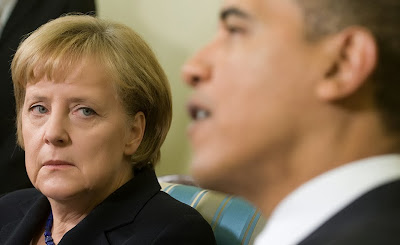Earlier this week, Sultan Hassanal Bolkiah of Brunei
announced a policy shift towards strict Sharia law to be enforced in six
months. For those who don’t know, Sharia is the set of moral laws traditionally
adhered to by those of the Muslim religion. Considered draconian, at least by
today’s standards, Brunei’s new laws will include punishments such as flogging,
amputation of limbs, and stoning for crimes ranging from drinking alcohol and
having an abortion to thievery and adultery. While Sultan Bolkiah has enforced
these laws previously, to a lesser degree, this shift is a substantial step
backwards for the country. Sharia law, while being perfectly reasonable as a
moral guide, has no place as a legitimate penal code in 2013, especially for an
entire state. The laws are more disadvantageous to women than they are to men,
strip individuals of many personal freedoms, and change the nature of a great
religion from being a spiritual means to happiness and peace, to one of
persecution and innumerable boundaries.

A public caning
Sharia law used to be sovereign penal code in the majority
of predominantly Muslim countries. Much of Africa, the Middle East, and
Southern Asia were once ruled under these laws. Secularization – at least to a
certain degree – swept through these regions throughout last century, and many
countries began to limit their use of Sharia as a legal guideline and encourage
it more as a spiritual one. Many countries that have kept Sharia as an
influence to their legal system now use it only in personal status cases such as divorce. In several
countries, certain regions remained under strict Sharia, while others began to
secularize and move away from it.
Today, only a few countries remain under strict Sharia
enforcement – Saudi Arabia, Sudan, Mauritania, and Qatar, to name a few. While Saudi
Arabia and Qatar are wealthy countries that have prospered despite the
overwhelming influence of religion in modern day life, this is not a universal
trend. Many of the other countries with stricter Sharia enforcement, such as
Yemen, much of Indonesia, and, to some degree, Afghanistan, do not enjoy this
level of wealth – or, for that matter, the same level of peace and security.
That’s not to argue that all countries that have adopted more secularized
approaches to their legal systems are prospering wonderfully – in fact, the
vast majority are still struggling to reach the next rung on the ladder of
development – but it does point out a possible hindrance to development in
predominantly Muslim nations.
Sultan Bolkiah
Which is why the case in Brunei is so discouraging.
According to the CIA World Factbook, in 2012, Brunei was ranked 11th
in GDP per capita. They have enjoyed incredible success in exporting natural
resources, and by most standards, citizens there live relatively prosperous
lifestyles. Introducing stricter Sharia law is not going to improve Brunei’s
economic situation; in fact, it will likely harm it. The quirk of Brunei’s new
laws is they will only apply to Muslims, who make up roughly 67% of the overall
population. Dividing the population by laws in this way will only exacerbate
tensions between religions that have plagued much of the region in recent
months. Not to mention, many of these Sharia laws may restrict women’s ability
to work, harming GDP and productivity levels for the country.
Sultan Bolkiah is worth approximately $20 billion himself,
making him arguably the wealthiest head of state in the world today. Perhaps he
is having trouble looking past his own pile of money at the potential damage
introducing these laws may have on his country. Christianity underwent the
Protestant Reformation centuries ago, paving the way for secularization on a
mass scale. I think the world has been better because of it. Isn’t it time
countries like Brunei began to secularize themselves?




